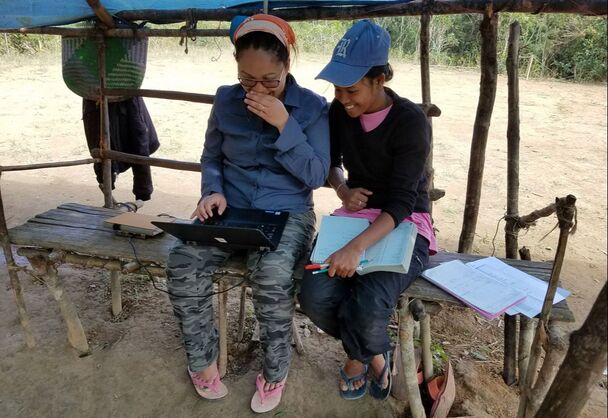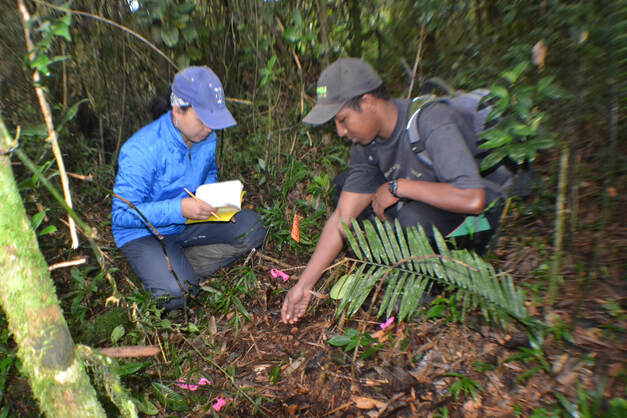Razafindratsima's mentoring philosophy
I encourage undergraduate students to get research experience because I think it can help them build transferable skills important in their future careers. I involve undergraduate students in all aspects of scientific research from experimental design and data collection to analyzing data and writing and presenting findings, to ensure that they understand the fundamental concepts and be able to interpret the implications, and to spark an interest for further inquiry.
My philosophy as a research mentor for graduate students is to foster enough independence for each student to identify their own research projects but provide enough oversight and guidance to help them in all aspects of the research process. I have found, from my own experience, that students are keen to conduct successful research if they explore questions that excite them. I believe it is important to spark in students a passion and excitement for the research they are doing. This leads to strong motivation and high productivity. Also, I maintain frequent communications with each mentee to assess and discuss progress, to identify and tackle problems, and to provide encouragement if needed.
I also strive to be inclusive in my research. I train and mentor a diverse body of students and technicians and provide assistance according to each participant’s needs. For example, when conducting field research in Madagascar, working with a multicultural team of American undergraduates and Malagasy students and technicians, I presented instructions in both English and Malagasy to accommodate everyone and used different methods to explain the scientific concepts and methods to make it easy to grasp for the local villagers with little to no education (but who were familiar with the local fauna and flora and worked as field technicians).
In addition to research mentoring, I also encourage students to develop skills in other aspects of scientific careers, such as writing successful grant proposals, communicating research findings, and participating in outreach and mentoring activities. I am glad that my mentors have encouraged me to adopt these approaches, as these have greatly helped shape my career trajectory and made me a better scientist.
I am constantly improving as a mentor, learning new ways as I interact with new students. But so far, these approaches have been successful, and I intend to continue with them while developing new ones. Some of my mentees have received grant supports for their research and/or awards for best presentations at professional/academic conferences (see here). Also, some of my current peer-reviewed scientific publications are co-authored by undergraduate students.
My philosophy as a research mentor for graduate students is to foster enough independence for each student to identify their own research projects but provide enough oversight and guidance to help them in all aspects of the research process. I have found, from my own experience, that students are keen to conduct successful research if they explore questions that excite them. I believe it is important to spark in students a passion and excitement for the research they are doing. This leads to strong motivation and high productivity. Also, I maintain frequent communications with each mentee to assess and discuss progress, to identify and tackle problems, and to provide encouragement if needed.
I also strive to be inclusive in my research. I train and mentor a diverse body of students and technicians and provide assistance according to each participant’s needs. For example, when conducting field research in Madagascar, working with a multicultural team of American undergraduates and Malagasy students and technicians, I presented instructions in both English and Malagasy to accommodate everyone and used different methods to explain the scientific concepts and methods to make it easy to grasp for the local villagers with little to no education (but who were familiar with the local fauna and flora and worked as field technicians).
In addition to research mentoring, I also encourage students to develop skills in other aspects of scientific careers, such as writing successful grant proposals, communicating research findings, and participating in outreach and mentoring activities. I am glad that my mentors have encouraged me to adopt these approaches, as these have greatly helped shape my career trajectory and made me a better scientist.
I am constantly improving as a mentor, learning new ways as I interact with new students. But so far, these approaches have been successful, and I intend to continue with them while developing new ones. Some of my mentees have received grant supports for their research and/or awards for best presentations at professional/academic conferences (see here). Also, some of my current peer-reviewed scientific publications are co-authored by undergraduate students.



